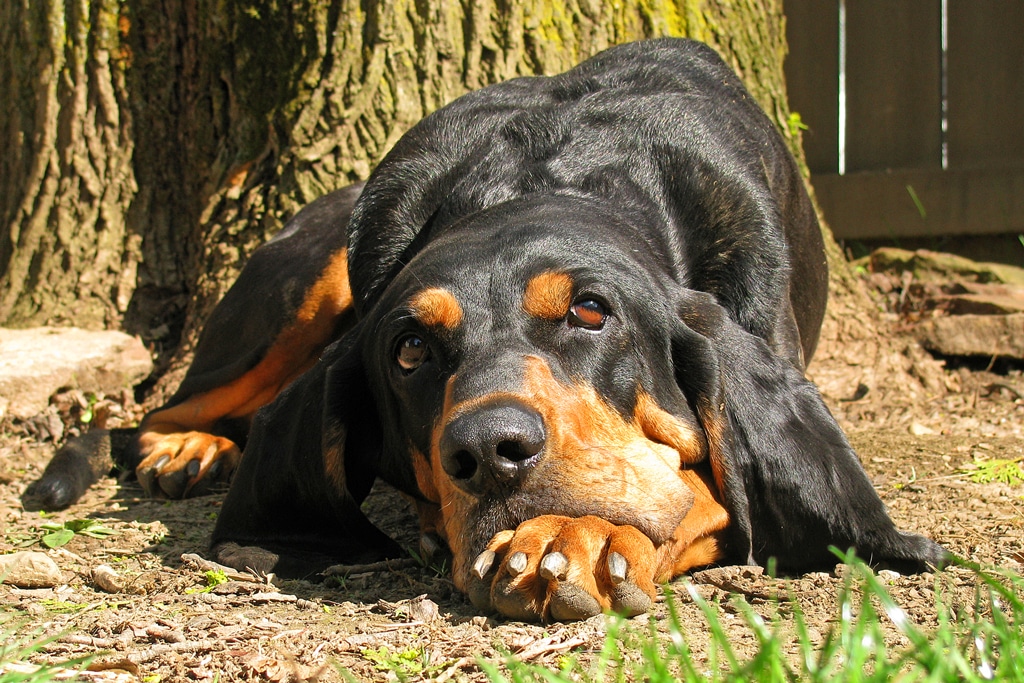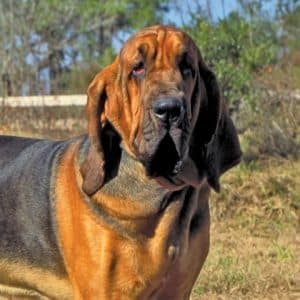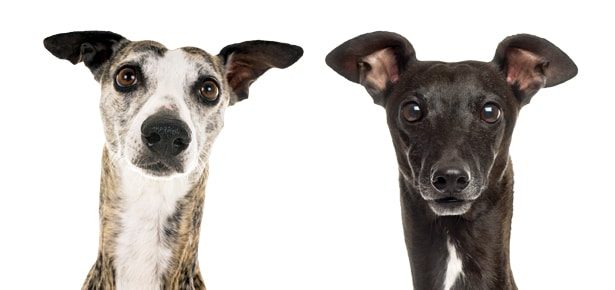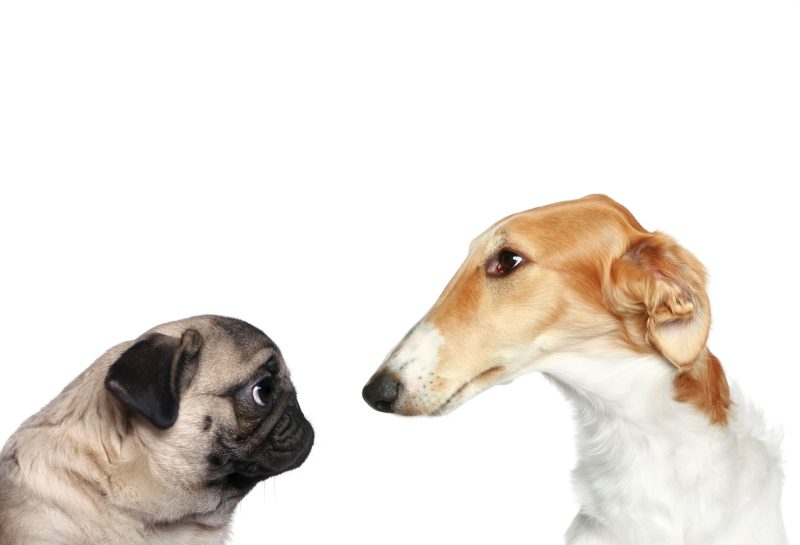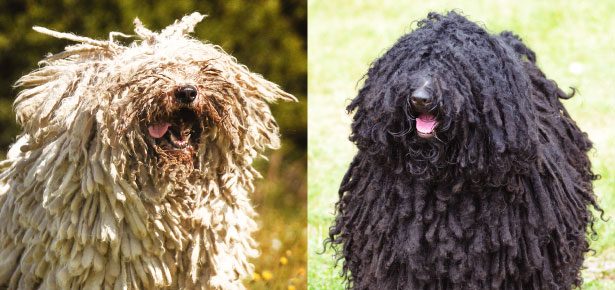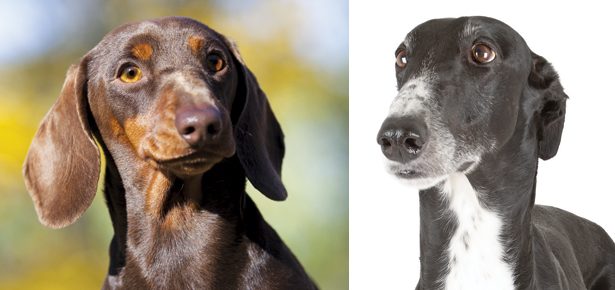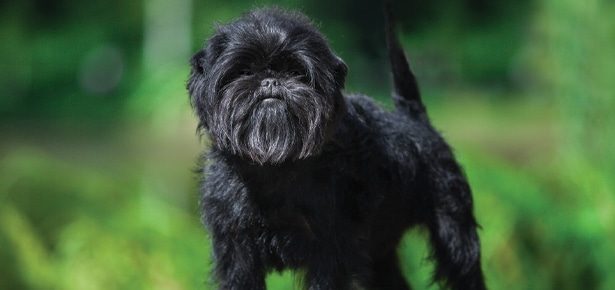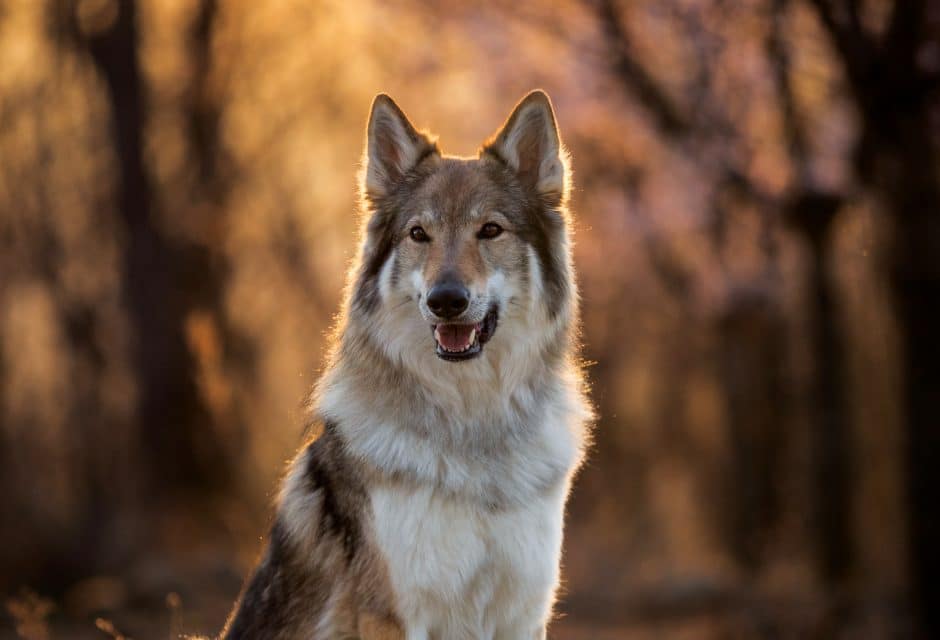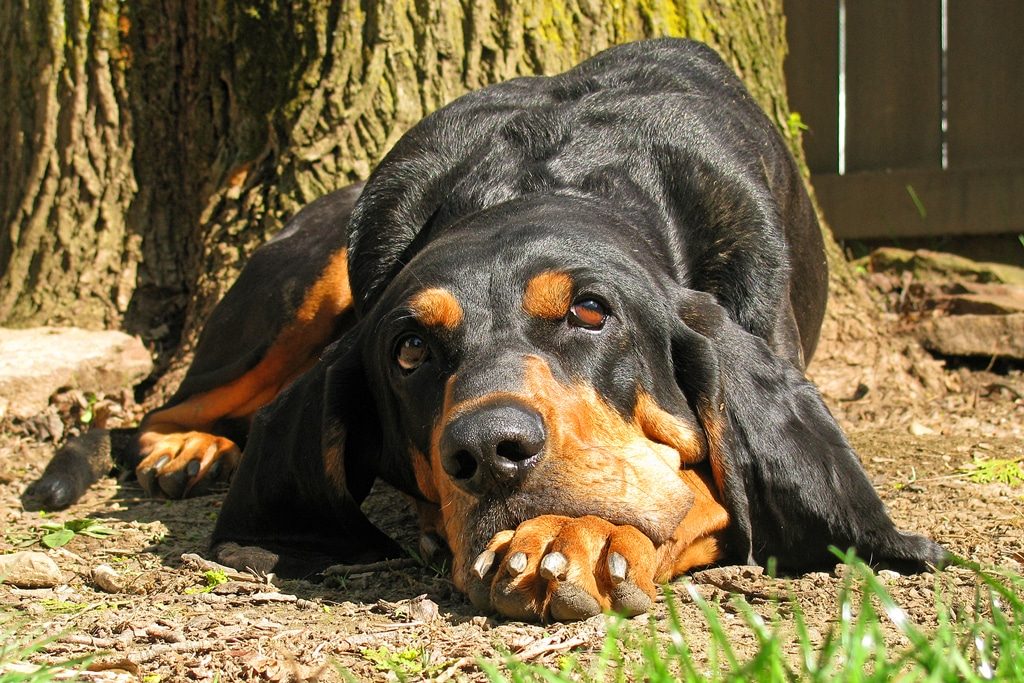
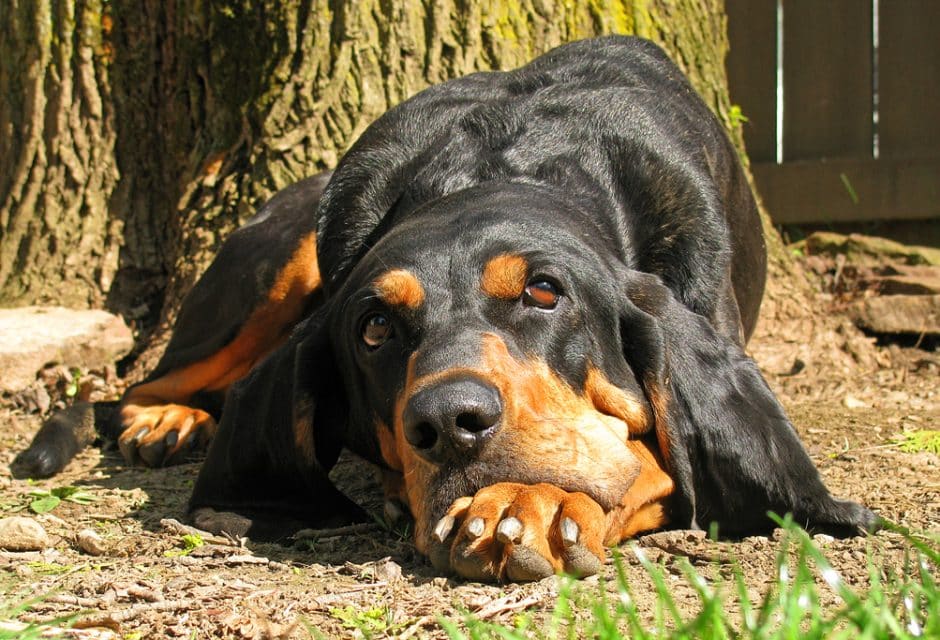
The Black and Tan Coonhound
Southern Gentleman

“If you have known the music of coonhounds on a trail and heard the excitement in their voices when they strike, and seen their eagerness and determination when they tree, if you have seen their courage and bravery…and witnessed their resolve to never quit, you know there has to be a God to make an animal like that.”
—William W. Ramsey, “Coonhound Eulogy”
In a shady meadow in northwest Alabama, you can walk among the gravestones and read the names: Smokey, Ranger, Preacher, Ruff, Bear Creek Sue. Some have carved granite headstones, some have homemade signs. Some stretch back decades, others are recent. All mark the resting places of dogs so beloved that their owners took the trouble to bring them to their final resting place in the Key Underwood Coon Dog Memorial Graveyard (coondogcemetery.com) a cemetery dedicated solely to coonhounds. No other breed may be buried there, because in the heart of the coonhound lover, no other breed is worthy.
Such is the passion engendered by the long-eared, long-running, deep-voiced hounds of the Deep South, which include the Bluetick, Redbone, English, and Treeing Walker, as well as the Black and Tan.
The Black and Tan was the first of these to be considered a separate breed from the American Foxhound from which they all evolved, and records of Black and Tan Coonhounds stretch back at least 300 years. All coonhound breeds—even the “English” Coonhound—are “made in America.” As there are no raccoons in Europe, it wasn’t until white settlers in the US wanted a hound to track and tree this clever critter that anyone thought to modify existing hound breeds to suit this new purpose. Foxhounds were designed to hunt fast-moving prey along the ground in the daylight; when their quarry climbed a tree, the dogs became confused and sometimes lost the trail. Coonhounds are nocturnal specialists, bred to trail game methodically until it seeks refuge in a tree; the dogs then remain below to prevent escape, baying loudly to lead the hunters to their location. Each dog has a distinctive bay or “bugle” that her owner can recognize and interpret, knowing from sound alone whether the dog is seeking a trail, has an uncertain scent, has hit a hot trail, or has brought the quarry “to tree.” The hounds may become so excited at treeing the game, they will frantically leap at and half-climb the trunk trying to reach the raccoon.
While traditional coonhound aficionados may thrill to this chase, the average dog owner may wonder whether a breed created to hunt prey through woods in the dark of night and chase it up a tree, all the time baying loudly enough to be heard from miles off, has a place in our modern, largely urban world. There is a striking dissimilarity between the popularity of coonhounds as marked by registration statistics of the American Kennel Club (AKC) and the United Kennel Club (UKC). The Black and Tan, for example, stands 91st in popularity according to the AKC, a body focused, to a large extent, on show dogs. The UKC, however, which is associated more with working dogs, lists the Black and Tan in the #5 spot for overall popularity—with coonhound breeds as a whole earning four of the five top spots. This would suggest that, where working ability is still valued, coonhounds top the polls. But can they be just good companions, in addition to—or perhaps in spite of—being superb hunters? According to CoonhoundCompanions.com, a breed information and rescue link site run by a group of hound lovers who worry about the unpopularity of their breeds with the dog-adopting public, coonhounds are true southern gentlemen and make excellent pets.
“This shunning of the hounds is puzzling to us coonhound lovers who know our hounds to be loving, sensitive family companions of the best sort…Full of energy and ready to rock when a job is at hand, then content to laze on the porch or dog bed for hours when it’s quiet time,” reads the site.
“The one thing that the general public should know about coonhounds is that they have great social skills with people, children and other dogs,” adds Jean Stone, one of the people behind CoonhoundCompanions. “They are also very charming and goofy!” Like all coonhounds, Black and Tans are easy to care for, with short, tight coats of, yes, black with tan markings, that barely need an occasional wipe-down for maintenance. Their pendulous ears should be checked and cleaned regularly. This is a vigorous breed with few ongoing health issues. Their size (22 to 27 inches) and ability to jump (remember those hounds leaping up the tree trunk?) means a tall, sturdy fence is required to keep them safe in their yard. And then there’s the “rebel yell.” If you think a B&T may be for you but you’ve never heard a coonhound baying, surf on over to YouTube and search for clips of coonhounds in full tongue. It is a sound that some adore and refer to as “music.” Others can’t abide it. If you are one of these or you have close neighbours who wouldn’t appreciate your dog’s “music,” look for another breed. Although most of us will never sit in the darkness of a southern night listening to the baying of coonhounds on the trail, wouldn’t it be comforting to know that your Black and Tan was on guard against those pesky varmints overrunning our suburban backyards? Pass me another mint julep, Scarlett.
If you like the Black and Tan Coonhound, check out the:
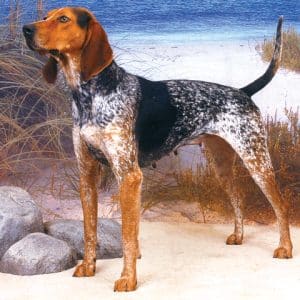
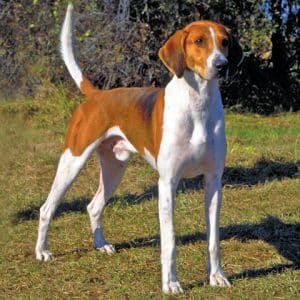
American English Coonhound American Foxhound Bloodhound
Photos: Mary Bloom © AKC
» Read Your Breed For more breed profiles, go to moderndogmagazine.com/breeds
Join the newsletter and never miss out on dog content again!
"*" indicates required fields
By clicking the arrow, you agree to our web Terms of Use and Privacy & Cookie Policy. Easy unsubscribe links are provided in every email.
